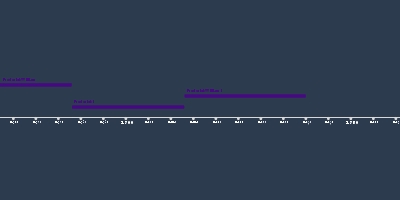1 gen 1848 anni - French Revolution of 1848
Descrizione:
Louis Philippe’s reign was known for favoring French elites and stubborn inaction and complacency. The country experienced unanswered desire for change, high-level financial scandals, and a severe depression due to crop failures that the government did little to prevent. The discontent of a diverse array of opponents to the king led to a popular revolt in Paris.On the night of February 22, workers and some students began to build a makeshift fortress and held out with guns behind it. They demanded a new government. Two days later, the National Guard joined them. Louis Philippe refused to call in the army and abdicated in favor of his grandson. The common people still refused a monarchy, and proclaimed a provisional republic. They drafted democratic, republican constitution for France’s Second Republic. It embraced liberty, fraternity, and equality, granted universal male suffrage, guaranteed workplace reforms, freed all slaves in French colonies, and abolished the death penalty.
There were stark differences in ideology amongst the revolutionaries. Socialist journalist and first member of the industrial working class to enter the French government Alexandre Martin represented the republican socialists. Moderate republicans wanted to provide only temporary relief. They compromised by setting up National Workshops and establishing a special commission under Blanc. The workshops provided some job support but this compromise left most unsatisfied. The next election swayed away from republicans. Moderate republican and author of Democracy in America Alexis de Tocqueville opposed socialists along with most of the new Constituent Assembly and hypothesized that the socialist movement stirred hostility among the united peasantry.
After the elections, the new government included no representative of the Parisian working class. Socialist artisans and unskilled workers invaded the Constituent Assembly and tried to proclaim a new revolutionary state. The government then squelched the uprising and dissolved the workshops in Paris. A class war ensued. Working people with a hope for a socialist society fought against the government, who was aided by the army and peasantry. After three “June Days'' of street fighting in which over 10,000 died or were injured, the republican army stood triumphant. The revolution had ended in failure. The Constituent Assembly completed a constitution with a strong executive. Louis Napoleon, nephew of Napoleon, became leader.
Aggiunto al nastro di tempo:
Data:
1 gen 1848 anni
Adesso
~ 177 years ago
